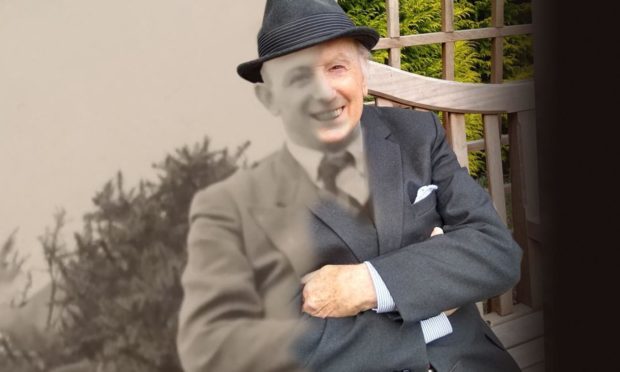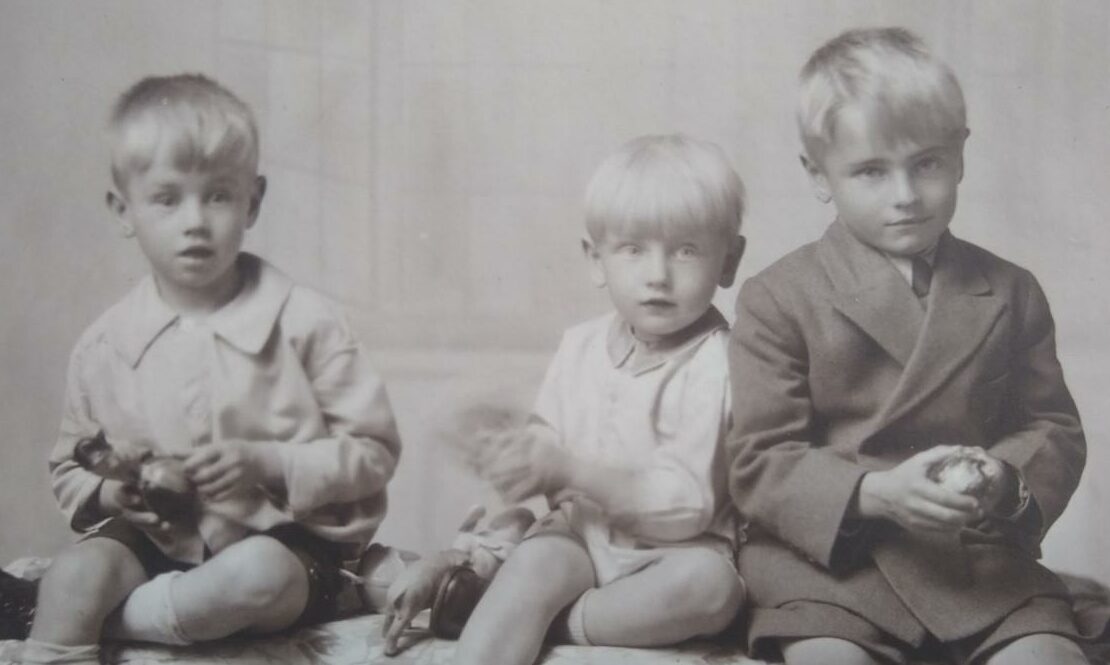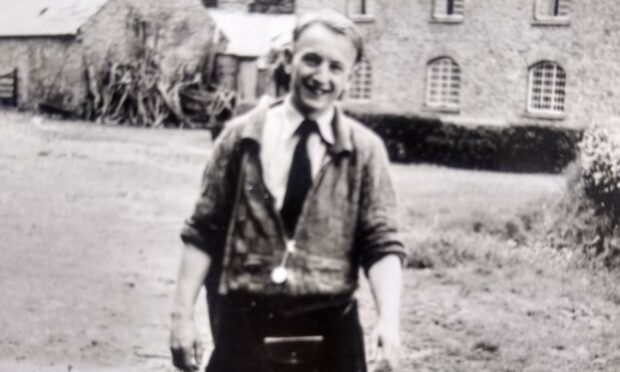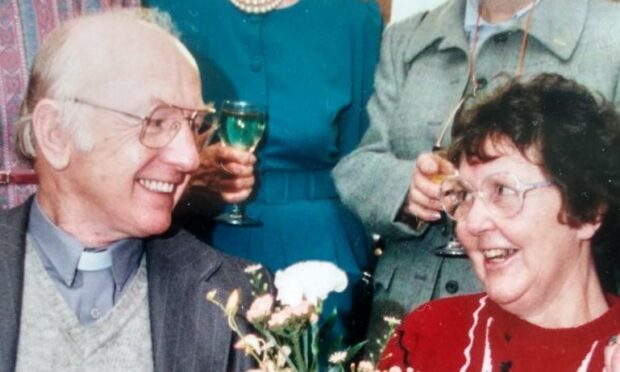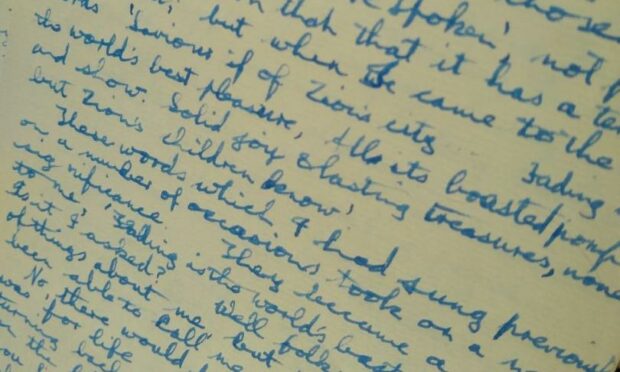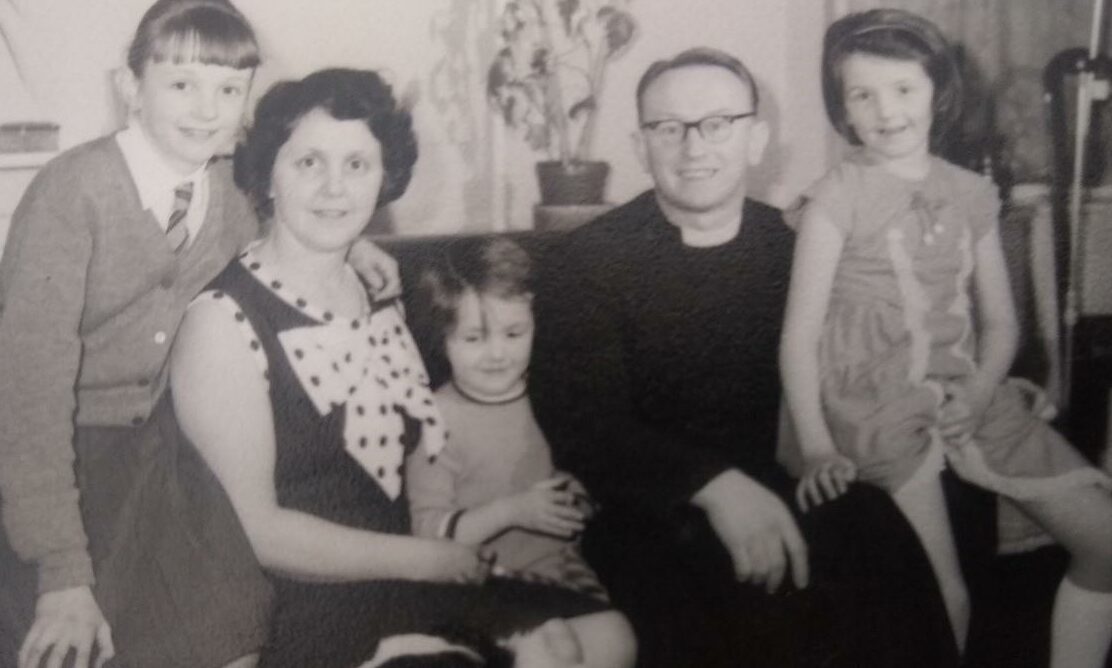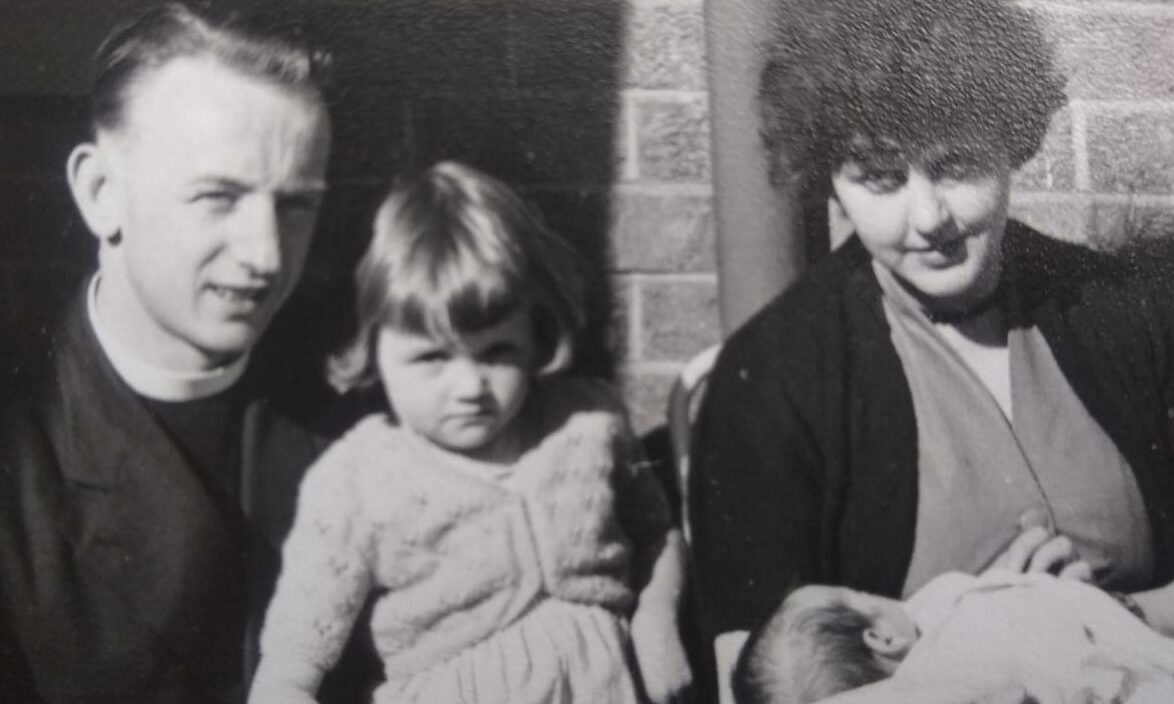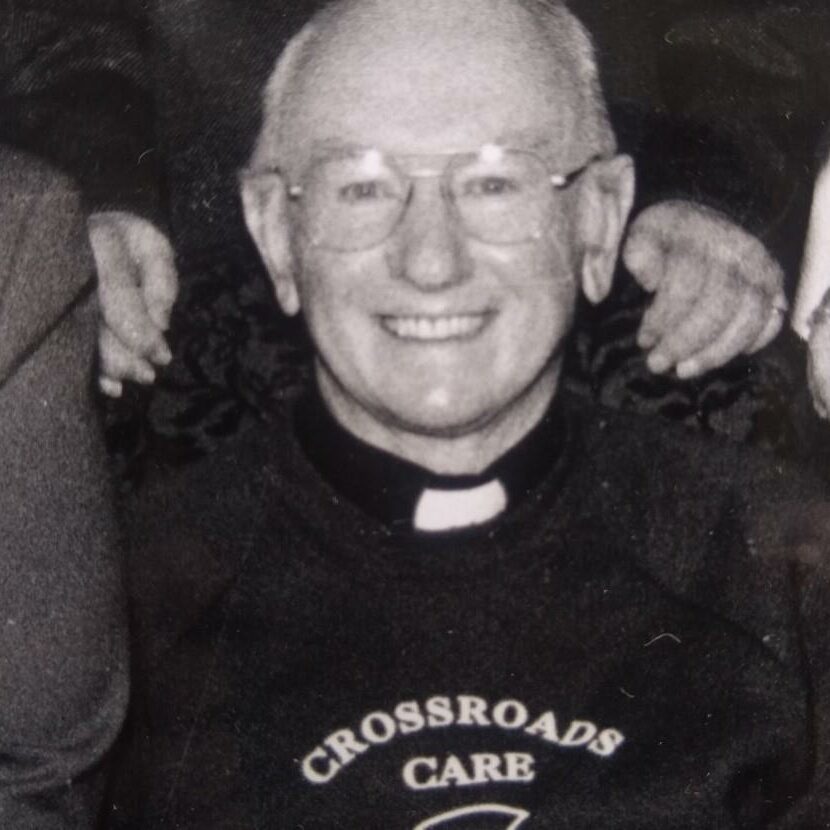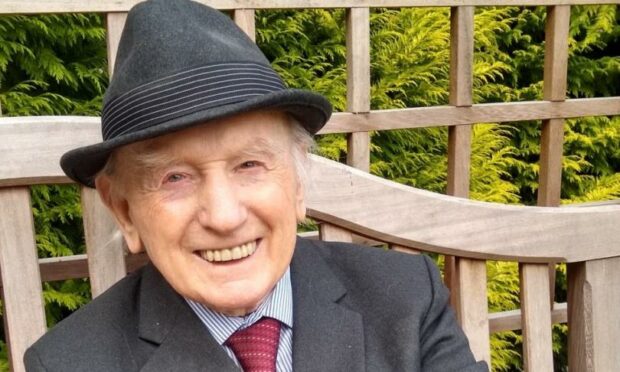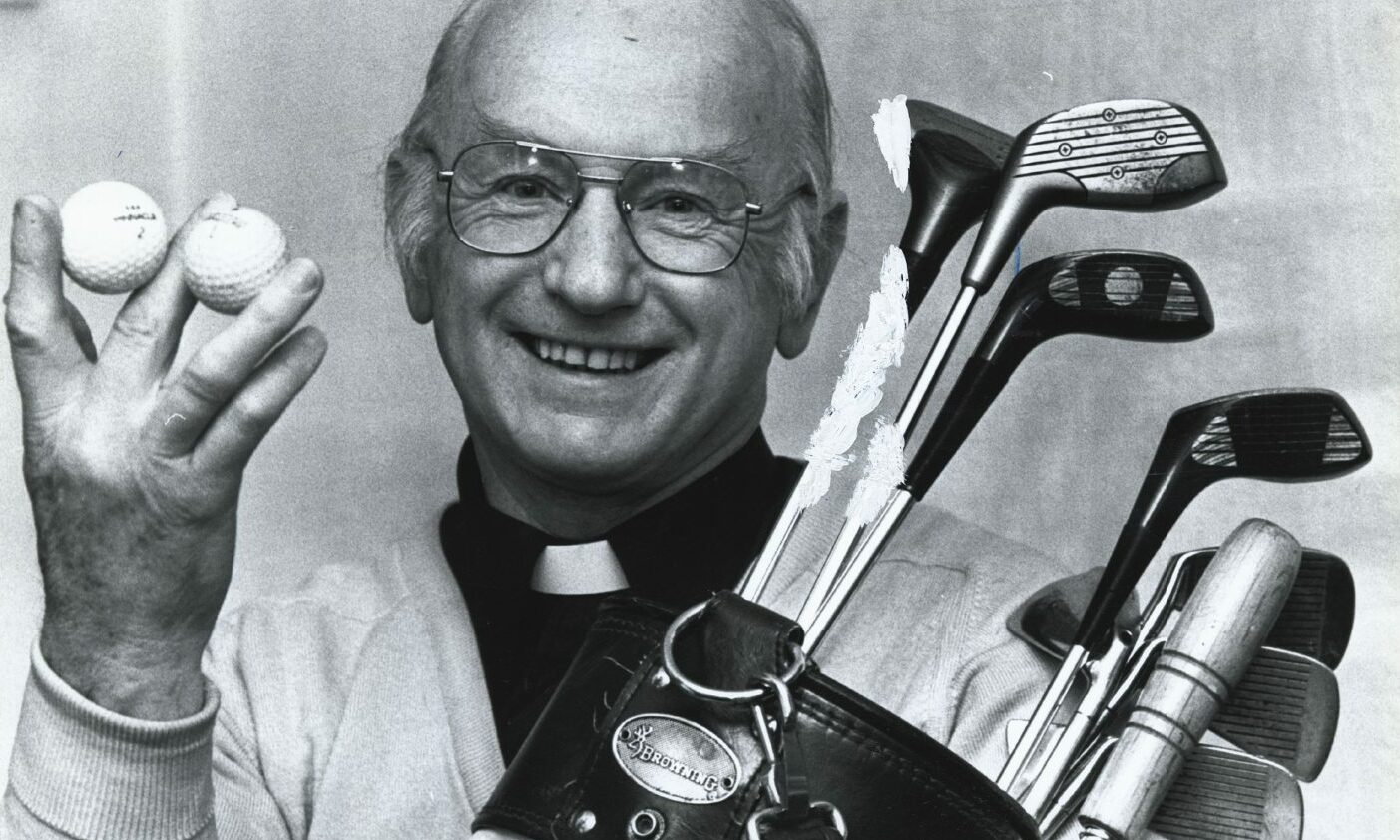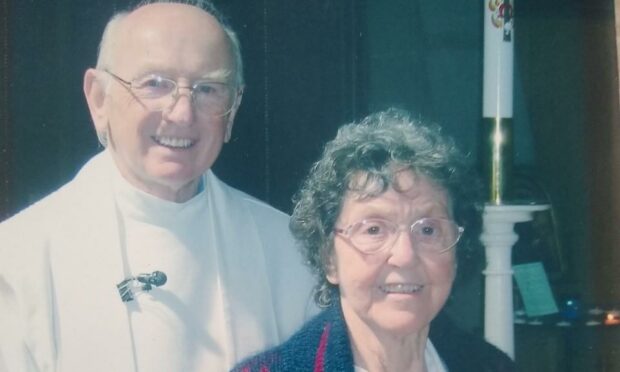Prison and RAF chaplain, Piper Alpha priest, Peterhead councillor and Aberdeen and Orkney Canon, Reverend James Douglas Alexander, has died aged 94.
The Moray-born minister, who served Aberdeen diocese for 45 years was following the family tradition in engineering until an encounter with God on his wedding day would change his life forever.
The third of four children, born in 1927 at home in Alexander’s Bakers, Lossiemouth, James spent his childhood roaming rugged Moray countryside.
But a job move for his father, William Alexander, just before the outbreak of the Second World War would mean he would exchange Scotland for London’s East End docklands.
Escape from bombs
From Fochabers school to East Ham, more moves were imminent as London fell siege in the Blitz.
He and his siblings were separated and evacuated, with James sent to
Ferndale in the Welsh Rhondda Valley.
Memories of the pits, singing and strict chapel regimes, stayed with him throughout his life. He was evacuated a second time to Swindon.
By 14, James had entered construction, helping build roads as well as Salisbury’s military hospital.
Daughter, Helen Alexander, said: “We don’t quite know when or why but the family reunited and moved again towards the end of the war. My grandfather wanted his sons to follow his lead and take up engineering so all three of them were apprenticed at Ruston and Hornsby, a large engineering company in Lincoln.
“Dad worked in test pits, on the construction of locomotives and on ships’
engines. His father was delighted that all three of his boys were at
Ruston’s.”
Young love
Still a teenager, James attended a nearby youth club where he fell in love with secretary Moreen Morriss.
On July 16, 1949, both aged 22, the pair married in St Giles Cathedral, Lincoln.
It was a union that would last for 58 years until Maureen died in 2007.
But it was the preparation for their nuptials that would cause the trajectory of their lives to change dramatically.
In a 1958 talk he penned for the YMCA, entitled, From Test Pits to Pulpits, Mr Alexander explained: “We did not go to church but as the wedding date drew nearer, something told us that this was to be one of the most important things in our life… at first I could not stick it.
“It was all bobbing up and down for no rhyme or reason, however, for Moreen’s sake I stuck it out.
“Come the great day, as the service progressed, a deeper understanding of what we
were pledging grew within us. We realised it was our very lives, and nothing less.”
The dramatic life change ushered in a later announcement, that after 14 years in engineering, he was leaving to serve the church.
It was a great surprise to his family, given their impression of Christian observance south of the border.
From a Presbyterian background he wrote: “We lapsed into the English way of life and never went to church except at Easter and Christmas.”
The couple, who had just started their family, welcoming daughter Helen, made headlines as James’ decision to leave engineering to train as a priest at Lincoln Theological college made the local paper.
On December, 21, 1958, aged 31 he was ordained as an Anglican deacon at Lincoln Cathedral.
Parish outside church walls
In 1959 he took up his first post as deacon in Scunthorpe where second daughter Rachael, sadly now deceased, was born and Kathryn arrived shortly after.
It was here James first began chaplaincy work, serving the nearby RAF bases.
In 1969 with a sense of both God, and Scotland, calling him home, the family moved to St Peter’s in Peterhead and the start of 45 years in the Scottish Episcopal Church in Aberdeen Diocese.
Helen said: “My dad had a real sense of wanting to serve all the people – not just the ones in the pews and so he forged ways to do that. It was in Peterhead that he began prison chaplaincy, his work with the Fishermen’s Mission and became involved in local politics, serving for a time on Peterhead Council.”
The family found a letter from a Peterhead prisoner thanking James for allowing his wife to stay at his home in the rectory, in order to visit him; an act of Christian charity they had not experienced before.
Aberdeen
In 1976 he accepted what would become a 20-year post at St Mary’s Episcopal Church, Carden Place, Aberdeen.
He was appointed a Canon of the diocese and synod clerk and would become one of the founders and chairman of the Aberdeen branch of the charity Crossroads, where Moreen also served, both of them for more than 20 years.
Craiginches Prison also benefited from his service during this time.
Mr Alexander would continue to preach and lead services even after retirement well into his 80s but it was caring for those in times of tragedy that would most leave a profound mark on the minister.
Piper Alpha
In 1986 when 167 men were lost during the Piper Alpha disaster, he was the Anglican Church respondent.
Press and Journal newspaper articles document St Mary’s Church being open 24-7 and families spending time there to pray and mourn.
He also penned an editorial in the church magazine – later shared in the newspaper – pleading for the inquiry into the tragedy not to become a witch hunt or scapegoating exercise but a way for it never to be repeated.
“Piper Alpha was something he never forgot. I remember him telling me about being there with the families when they went out to sea for a memorial service. He said he would never forget the face of a young girl who lost her daddy,” Helen said.
Hole-in-one
Gardening and golf were both favourite pastimes well into his 80s, but he never quite topped his Hazlehead Golf Course feat from his younger years.
Witnessed by three French ladies while he played a round on his own, he managed to achieve an elusive hole-in-one.
Commenting later in the paper that he “ended up being late for a meeting but it was worth it”, he also managed to duck out of paying for the obligatory round of drinks, desperate to make up lost time at his prior engagement.
Later years
James Alexander would end his life in St Margaret’s House in Polmont, to be near his daughter Kathryn, as dementia began to advance.
He is also survived by his grandchildren Ruth and Callum, and great grandchildren Damon, and Bailley.
Kathryn said: “The service my parents gave to others had a profound impact on me. We had many people visiting the home in times of need and these experiences led me to train as a social worker.”
In her eulogy to her dad Helen added: “He died very peacefully, his life’s work done, on June 2, and remained kind and caring until the end.”
